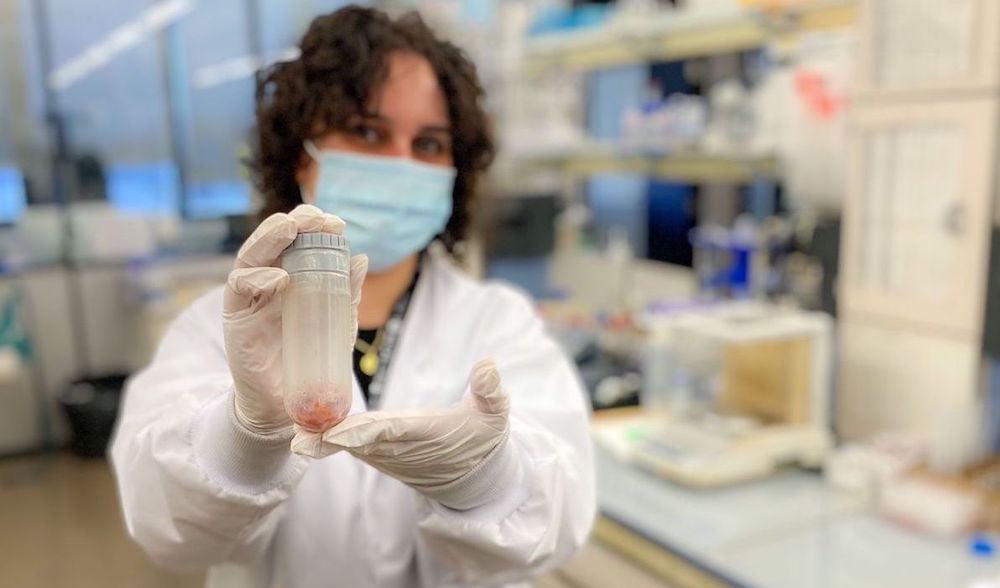A research team led by the Institute of Molecular Science (ICMol) of the University of Valencia has developed an intelligent polymer based on the natural essences encapsulated in MOF-type structures. This material acts against two bacteria responsible for food poisoning to consumers. The work has been published in the Applied Materials&Interfaces magazine.
Extending the efficacy of antibacterial action in protecting foods by mitigating natural bioactive composts, encapsulated in molecular structures, and released under control –delivery– is a promising field for the food industry. It allows to improve food safety, the nutritional quality of products and the level of health. All of them key factors in the so-called “green consumerism”.
The work, recently published by the journal Applied Materials & Interfaces, of the American Chemical Society, shows the development of an ‘intelligent’ material, based on a metal-organic polymer –MOF– that houses essential oil molecules and that, by releasing them in a unique way, promotes prolonged antibacterial activity. The system has been tested against two bacteria – Escherichia coli and Listeria innocua – responsible for some food poisoning in consumers. As described in the article, the material used for this type of delivery is MIL-100(Fe) and the active natural molecule is carvacrol, present in the essence of oregano and thyme. Led by the Crystal Engineering Lab (CEL) of the ICMol, the work has the collaboration of the Institute of Agrochemistry and Food Technology (IATA-CSIC) and the University of Lisbon.
MOF materials allow the capture, storage and controlled delivery of active molecules thanks to an adequate configuration of their chemical structure. This structure not only protects and stabilises the active molecule –in this case carvacrol–, but also provides an unprecedented prolonged delivery system that dramatically enhances its antimicrobial effect.
“Although carvacrol was already commonly used as a food additive to prevent contamination by bacteria, what is interesting about this new encapsulation method is that, in addition to being biocompatible, it allows prolonged supply of the stored molecule and thus prolongs its antibacterial action”, comments Mónica Giménez, Ramón y Cajal researcher at the Molecular Science Institute and head of the project. “Every day more, the food industry requires natural solutions to reduce the problems of deterioration of the safety and quality of food, produced by the growth of altering or pathogenic microorganisms”, adds Rafael Gavara, IATA researcher and co-author of the article.
Suitable for large-scale production
Essential oils are natural substances extracted from plants with pharmacological properties and applied empirically for centuries. The antibacterial power of carvacrol, the antiseptic properties of anethole, citral, geraniol and thymol, or the antioxidant and antitumor properties of phenolic compounds are well known. However, its low solubility, its high volatility and the poor reproducibility of its activity often make large-scale production of this type of oil difficult. “In MOF encapsulation techniques, as they are materials with high porosity and high load capacity, this problem is overcome and large-scale production is possible”, explains Mónica Giménez.
Carvacrol@MIL-100(Fe), as the obtained MOF is called, could have interesting applications in food packaging.
Reference:
Exploiting the Redox Activity of MIL-100(Fe) Carrier Enables Prolonged Carvacrol Antimicrobial Activity. Katia Caamaño, Raquel Heras-Mozos, Joaquín Calbo, Jesuś Cases Díaz, Joaõ C. Waerenborgh, Bruno J. C. Vieira, Pilar Hernández-Muñoz, Rafael Gavara, and Mónica Giménez-Marqués. Appl. Mater. Interfaces 2022, 14, 8, 10758–10768. https://doi.org/10.1021/acsami.1c21555
Photo: ICMol researcher Katia Caamaño holds a sample of thr MOF-based composite with antimicrobial properties.


